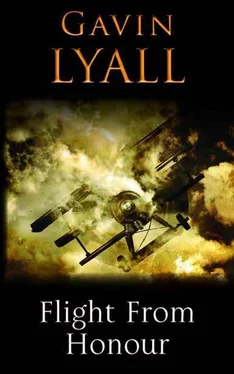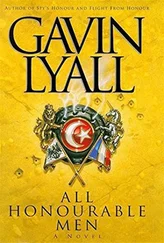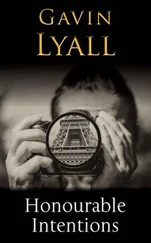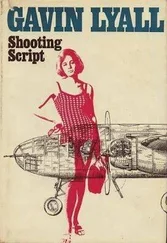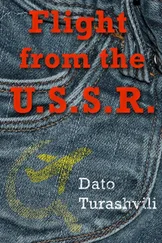Gavin Lyall - Flight From Honour
Здесь есть возможность читать онлайн «Gavin Lyall - Flight From Honour» весь текст электронной книги совершенно бесплатно (целиком полную версию без сокращений). В некоторых случаях можно слушать аудио, скачать через торрент в формате fb2 и присутствует краткое содержание. Год выпуска: 2013, Издательство: PFD Books, Жанр: Шпионский детектив, Исторический детектив, на английском языке. Описание произведения, (предисловие) а так же отзывы посетителей доступны на портале библиотеки ЛибКат.
- Название:Flight From Honour
- Автор:
- Издательство:PFD Books
- Жанр:
- Год:2013
- ISBN:нет данных
- Рейтинг книги:4 / 5. Голосов: 1
-
Избранное:Добавить в избранное
- Отзывы:
-
Ваша оценка:
- 80
- 1
- 2
- 3
- 4
- 5
Flight From Honour: краткое содержание, описание и аннотация
Предлагаем к чтению аннотацию, описание, краткое содержание или предисловие (зависит от того, что написал сам автор книги «Flight From Honour»). Если вы не нашли необходимую информацию о книге — напишите в комментариях, мы постараемся отыскать её.
Flight From Honour — читать онлайн бесплатно полную книгу (весь текст) целиком
Ниже представлен текст книги, разбитый по страницам. Система сохранения места последней прочитанной страницы, позволяет с удобством читать онлайн бесплатно книгу «Flight From Honour», без необходимости каждый раз заново искать на чём Вы остановились. Поставьте закладку, и сможете в любой момент перейти на страницу, на которой закончили чтение.
Интервал:
Закладка:
“In India,” Ranklin said thoughtfully, “the Intelligence wallahs may have had more choice of volunteers. He’ll have to learn that here, he uses who he’s got. Like you. And me.”
O’Gilroy breathed smoke slowly. “And why d’ye all call it a ‘game’?”
“To try and get the English to take it seriously.”
8
Looking back on that Thursday, Ranklin came to the self-pitying conclusion that the only person who enjoyed it less than himself might have been Princess Sophia of Saxe-Weimar, because she committed suicide that day. On the other hand, she thereby let herself off part of the day. He got it all.
It began innocuously with Dagner giving the new recruits a brief, chatty but pointed talk based on his own experience – in this instance, with journalists.
“Resist your immediate instinct to despise them, borne are pretty good at their job, and all of them have been doing that job longer than you have yours, at the moment. But remember that journalists have opinions, even if they may try not to let them show in print. And more: after years of listening to the policy-makers, they want – perhaps secretly, even unconsciously – to make policy themselves. One way, of course, is to publish a demand for such-and-such a policy. But that’s open, nailing your colours to the mast – and their editors may not let them do it anyway. The other way is not to publish: To support the policy-makers they believe in by withholding unpleasant facts about them, facts that might ruin their careers and place in society. And those, gentlemen, are the stories you want to hear. They may be well worth the price of a drink.”
He paused, swinging one long leg from his perch on the edge of a table. “Only – don’t fall into the same trap. Don’t conceal, in your own reports, the nastier side of people you have come to like or believe in. Show you are more reliable than journalists by reporting without fear or favour, and leave policy to your country’s policy-makers.”
He left them to clip or precis a pile of learned foreign-affairs journals, and Ranklin to get on with drafting the training programme.
Lock-picking, he wrote. Probably safe-breaking was an art that took years to acquire, but it would be useful if they could open ordinary doors, drawers and luggage without leaving traces. Perhaps Scotland Yard could recommend a reliable criminal to give a demonstration . . .
Forgery: The Commander presumably had access to the Government printers for elaborate and official-looking documents, but a spy in the field might need to alter a name on a passport or write his own letter of introduction. Again, the Yard should be of help, but British forgers might be a little insular. They really needed to study the slanting French script, the upright and rather childish Italian styles, the angular German . . .
Personal weapons . . . But then Dagner came out of the inner room with a letter from someone in the War Office. “I’ve got a chap here asking us to explore the suitability of the terrain in Schleswig for cavalry operations. He says we’re the experts on invasion by sea – are we? And is somebody proposing to invade North Germany?”
Ranklin pushed back his chair and relit his pipe. “As I understand it, an important argument for setting up the Bureau was to explore the threat of being invaded from North Germany-”
“We heard about that scare even in India. What did we conclude?”
“Oh, it’s rubbish, of course. But our elders and betters have a vested interest in keeping any sort of war scare going, realistic or not, to justify increased spending on new ships and things – even on us I suppose. So it isn’t in their or our interest to conclude that it’s rubbish. We just report – provisionally – from time to time that it’s unlikely to happen this week.”
“I see.” Dagner glanced at the letter again. “So that makes us the acknowledged experts at something we don’t believe in. It sounds positively theological. But do we believe in ourselves invading Germany?”
“I doubt it. But when a general gets a bee in his bonnet it can fly both ways. I’ll handle it if you like.”
Dagner passed the letter over but also asked: “How?”
“Sit on it for a week or so in case we need to send someone to Schleswig for a good reason as well. Otherwise, get someone – like Lieutenant P, he reads German well – to see what he can dig out of libraries. There was probably some cavalry action there in 1848 or ‘64. Finally, send in a report that’s coy about its sources.”
Dagner looked uncertain, so Ranklin added: “It helps the cause: shows willing but doesn’t waste too much of our time.”
Dagner sighed. “I suppose so.” He went back into the inner office.
Personal weapons – then it was the telephone girl with a call from a manufacturer of phonographs wanting to speak to the Commander. Ranklin got the call routed to himself and discovered, by roundabout questions, that the Commander was thinking of buying such equipment – presumably for mechanical eavesdropping. On the instant, he became the Commander’s assistant, hinted that it was to do with wireless training in the Navy, swore the manufacturer to secrecy, and said the Commander would be in touch when he returned.
Personal weapons – only now he had to support Dagner at a meeting with an Admiralty accountant over a proposal to set up a bank account in Amsterdam. It turned out that the accountant couldn’t authorise this himself, merely recommend it if they convinced him it was necessary. The argument quickly dwindled to whether “necessity” was an absolute concept like having a rudder on a ship or a sensible precaution like having a lifeboat. It was unlikely that the Admiralty accountant had ever seen a ship, but it seemed polite to use nautical analogies. Such tact meant the proposal was at least still breathing when it was shelved indefinitely due to the pressures of lunch.
“I hate to say this,” Ranklin observed as they walked back across Whitehall, “but the simplest solution would be to produce a document – code or technical drawing or order of battle – and swear we paid five hundred pounds for it in Brussels. And start the account with that.”
After a moment, Dagner said: “But don’t you think that, in our situation where nobody can really check on whether we’ve been strictly honest in our claimed expenditure, it behoves us to be strictly honest?”
“Perhaps,” Ranklin said, who no longer thought so.
Personal weapons, Ranklin resumed after lunch, and waited for the next interruption. It didn’t come, so he moved on cautiously. Carry a pistol only if your (adopted) persona would carry one in those particular circumstances. And then avoid anything exotic that suggests you care about pistols. Don’t carry a knife, but know how to use one. It’s not an Anglo-Saxon weapon, but it’s usually easy to come by. You only need a” four-inch blade to reach a man’s heart, thrusting slightly upwards through his ribs-
How the hell do I know that? he wondered, staring at the page as if it had spat at him. I certainly didn’t know it a year ago. Did someone in the Greek Army tell me? Or O’Gilroy? Or was it one of those odd scraps of knowledge that seem to settle and cling to me now I have the stickiness of a spy?
He shrugged mentally and tried to think of other personal weaponry that was both effective and unsuspicious – but then Lieutenant M got back from lunch having learnt from an old friend of his father’s that the Japanese were trying to stir up the Finns to revolt against their Russian masters-
“Really?” Ranklin put on an impressed expression. “What instances did he cite? And names?”
Читать дальшеИнтервал:
Закладка:
Похожие книги на «Flight From Honour»
Представляем Вашему вниманию похожие книги на «Flight From Honour» списком для выбора. Мы отобрали схожую по названию и смыслу литературу в надежде предоставить читателям больше вариантов отыскать новые, интересные, ещё непрочитанные произведения.
Обсуждение, отзывы о книге «Flight From Honour» и просто собственные мнения читателей. Оставьте ваши комментарии, напишите, что Вы думаете о произведении, его смысле или главных героях. Укажите что конкретно понравилось, а что нет, и почему Вы так считаете.
